Fresh beer straight from the brewery has the best taste. However, sometimes you have to store beer bottles in the fridge for an extended period of time. When this happens, there’s always the challenge of determining whether they’re still safe to drink or not. So, does beer expire or go bad? What is the shelf life of beer?
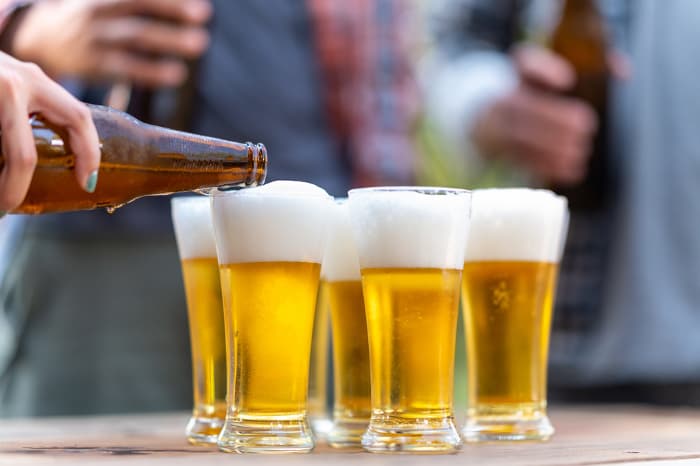
Read on for answers to this and several other related questions.
Does Beer Expire?
How long does beer last before it expires? There isn’t an across-the-board answer to this question. Saying that beer expires is as inaccurate as saying it doesn’t.
Here’s why.
Like most alcoholic drinks, beer is made from organic plant ingredients. These organic components are what give beer its flavor and during storage they gradually decay through a process called oxidation. While the oxidation process doesn’t make beer unsafe for consumption, it definitely alters the taste. The resulting stale beer lacks the hoppiness and freshness of beer straight from a brewery.
So, is it correct to say that oxidized beer has gone bad? It depends. If you look at it from the perspective of best-by dates, the beer has expired and could be considered bad since the flavor has changed. But if you’re looking at it from a food safety perspective, then the beer has simply lost its original taste, but won’t harm you if you drink it.
Does Beer Go Bad?
Some people believe that under proper storage conditions, unopened bottled beer can retain optimum taste, freshness, and quality until opened. However, as we’ve explained, this assumption is not entirely accurate.
While beer drinkers may debate whether beer expires or not, there’s no denying the fact that unopened beer kept for long periods of time eventually goes bad. Going bad can mean anything from losing the original taste and tasting stale to actually acquiring weird or unappealing flavors and odors.
Of course, there are a few exceptions. Some beer styles like vintage beers don’t go bad over time; they get better and tastier from spending time in storage.
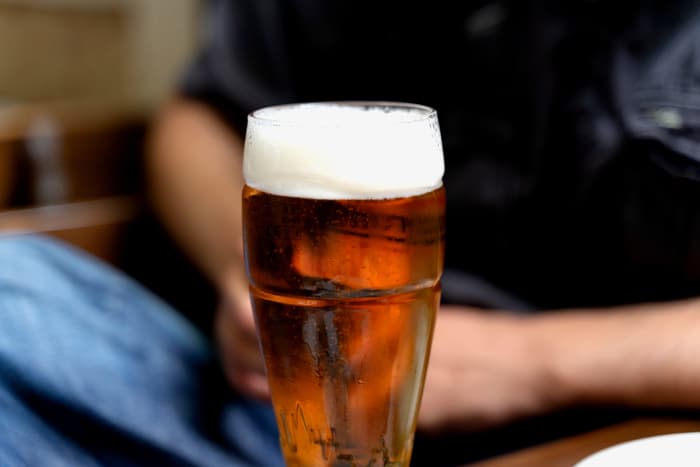
What Causes Beer To Go Bad?
Beer drinkers often blame breweries when they come across stale or bad-tasting beers. However, this blame isn’t always justified.
Brewing is a business and breweries go to great lengths to protect their reputation by giving their customers the best experience with their products. Naturally, sometimes there are mistakes in packaging, sanitation, or the brewing process. Such cases tend to be rare, and they often don’t cause beer to go bad.
In most cases, beer goes bad either because of overexposure to light or oxygen, or both. So before blaming the brewery, ask yourself if you considered these two factors before you stored your beer.
Light
When beer is exposed to UV light for too long, it becomes “lightstruck.” This means the alpha acids in the beer’s hops break up due to a chemical reaction with the UV light and recombine with sulfur components to produce skunk spray-like compounds. This results in a beer with a combination of skunk scent and a skunky taste — skunked beer, in other words. For bottled beer, especially those in clear bottles, this reaction can also result from exposure to fluorescent lighting. For this reason, beer retailers should minimize the amount of natural and artificial light beer bottles are exposed to in their stores as much as possible.
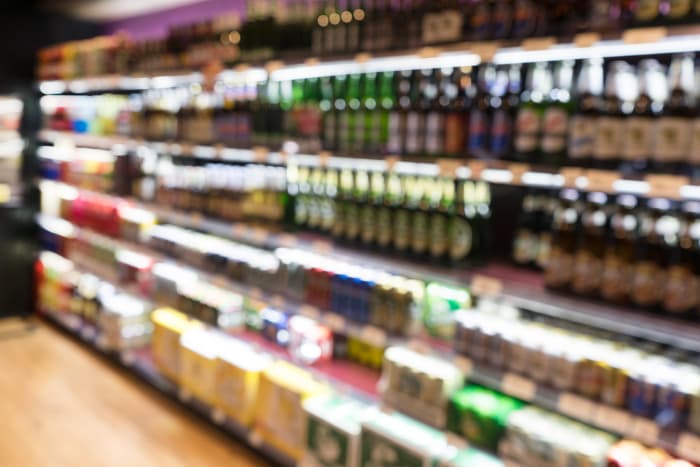
Oxygen
When oxygen and beer come into contact, oxidation occurs. Oxidation is essentially the aging of beer, which causes it to lose the original taste and smell. You can’t completely stop the oxidation of beer, but you can minimize it by identifying the contributing factors and eliminating them.
Motion and heat will speed up oxidation in beer. That’s why beer that travels long distances under high temperatures is likely to go bad faster. To minimize oxidation, keep beer in cold storage and limit movement.
How Long Does Beer Last?
Knowledgeable beer lovers understand that the dates printed on most canned beer bottles are the bottling dates. It’s sometimes called a “born on” date. However, sometimes the date printed on labels or cans is the pull date, which is the date that retailers should remove the beer from shelves if it hasn’t sold. A pull date is the last date the brewer feels the beer will still taste “brewery fresh.”
A typical beer has a shelf life of between six to nine months after the bottling date. If kept in beer fridges, they can stay fresh for up to two years past the dates on their labels. The beer can go bad faster or slower depending on the following factors:
Packaging: Cans vs. Bottles
Canned beer is likely to stay fresh for longer than bottled beer. That’s because beer cans completely block light and are better at preventing contaminants and air from reaching the beer to cause decay. If you’re not a fan of canned beer, you can opt for brown glass bottles — they block UV light and prevent your beer from having a skunky taste better than clear or green glass bottles.
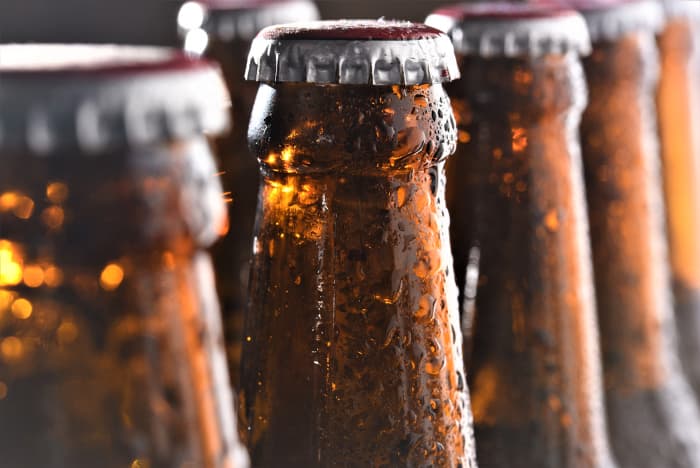
Temperature
The ideal temperature for storing beer is between 50 to 55 degrees Fahrenheit. High temperature speeds up the decaying and oxidation processes that alter the beer’s flavor. Refrigeration extends the shelf life of your beer.
Storage
The way you store the beer bottles also determines how fast the beer goes bad. The best way to store bottled beer is by keeping the bottles in an upright position. This minimizes the surface area of beer exposed to oxygen inside the bottle. It also keeps yeast and sediment at the bottom of the bottle where it comes into contact with less of the beer.
Popularity
How high is the demand for the beer you want to buy? Imperial stouts in high demand are less likely to stay in stock for long. Therefore, they’re more likely to be fresh when you buy them, unlike other beers that sit on the shelves for extended periods.
Distance
Local beers are likely to be fresher than those that have traveled long distances by road or air to get to the retailer. The greater distance a beer has traveled, the higher the chance it’s been exposed to extreme temperatures, agitation, and oxidation.
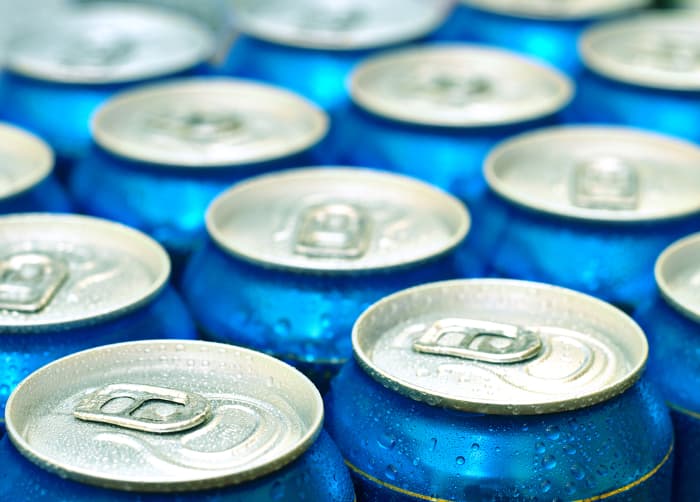
6 Ways to Tell if Your Beer has Gone Bad
Here are six common warning signs that your beer has gone bad:
1. The Beer Smells Like Skunk
If you are familiar with the skunk smell, you know that it’s not an appealing scent. This is one of the most obvious and common signs of a spoiled beer. It’s the source of the phrase “skunked beer,” which beer drinkers casually use to refer to any bad beer. Skunked beer is caused when light causes a chemical reaction in beer that released sulfur compounds from bitter hops.
Note that in some beers, skunking is not a sign of bad beer. For instance, Heineken brewers in the US deliberately bottle their beer in colored bottles to encourage skunking, whereas Heineken is bottled in brown glass in Europe. This means Heineken in the US tastes very different than it does in Europe or when it’s on tap.
2. The Beer Tastes Stale
Before you open a beer bottle, the beer in it shouldn’t have had contact with oxygen. Prior contact with oxygen by bottled or canned beer leads to oxidation, which causes a cardboard-like or stale taste.
3. The Beer Tastes Like Popcorn
The popcorn taste in beer results from overexposure to diacetyl, which is a compound produced by fermentation as beer ages. It is buttery-flavored and is unhealthy to the lungs when consumed in high amounts.
4. The Beer Has an Unpleasant Taste
While there are several beer types with weird tastes, you can usually tell if the flavor you’re tasting is unintentional. For instance, it could taste like sulfur, sewage, or rotten cabbage.
5. The Beer Smells and Tastes Like Stomach Bile
Have you ever walked into a bar and ordered your regular beer only to be met by a strong revolting scent? Or, you take a sip, and it tastes wretched like the bile you feel on your throat when food accidentally regurgitates to your mouth? If so, then it means that the beer was stored in a container infected by bacteria. It could have happened in the bottle or can or the draft at the brewery.
6. The Beer Tastes Like Mowed Grass/Green Apple
This taste means that your beer has high levels of acetaldehyde. While small amounts of acetaldehyde are standard for most beer types, high levels mean the brewer terminated the fermentation process prematurely. In extreme cases, the beer will smell like an apple orchard with unripe apples.
Is it Safe to Drink Bad or Old Beer?
In most cases, old beers have no harm except for the unappealing smell and taste. Unless it has extreme amounts of dangerous chemicals like diacetyl or any other harmful pathogens, which rarely occurs, expired beer is still safe for drinking. Some people actually deliberately store their beer for long periods of time to change the flavor.
How To Store Beer For Extended Periods
Craft brewers work hard to produce beers with the best flavors. They bottle and ship them for purchase and consumption as soon as possible. To have the best beer experience, you should consume it when it’s still fresh.
If you must keep it for some time, proper storage is crucial. Here are three tips to help you keep your beer fresh for long:
1. Store at the Ideal Temperature
The perfect temperature for storing most beers is between 50 to 55 degrees Fahrenheit. You should keep the beer warm enough to preserve the delicate flavors without increasing oxidation. Your regular kitchen refrigerator is usually set too cold to serve as a longer-term storage option for beer, so you may want to invest in a smaller refrigerator to serve as a dedicated beer fridge.
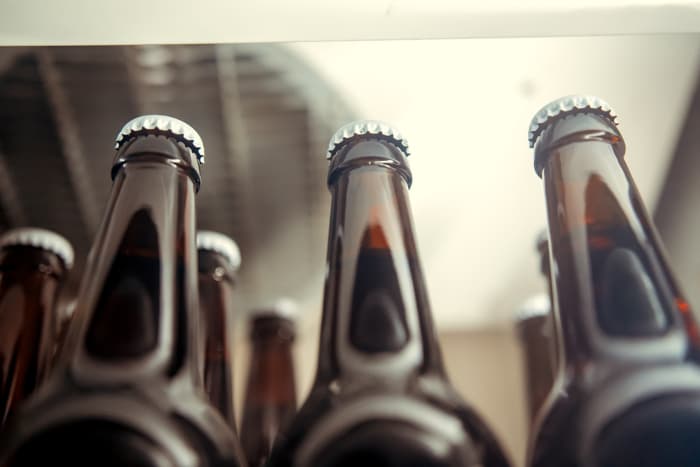
2. Store in No or Minimal Light Conditions
Light, like high temperature, increases the aging rates of beer. Therefore, you should store beer in the dark or exposed to minimal light.
3. Store in an Upright Position
Keeping beer bottles in an upright position minimizes beer’s exposure to oxygen in the bottle and reduces oxidation rates.
FAQS
Can expired beer make you sick?
No. Beer, and generally most alcoholic beverages, cannot go bad to the extent of making you ill.
Can you drink a beer that is two years out of date?
Yes. Most brewers pasteurize their beers to remove any harmful pathogens. So, even if the beer is stored past the bottling date, you can still drink it.
Is there an expiration date for beer?
Yes, but you won’t find it printed on the bottle or can. What you will most likely find is the bottled on (or sometimes the pull date). Add six months to the date printed on the beer bottle or can to calculate the best-by date for your beer.
Wrapping Up Bad or Expired Beer
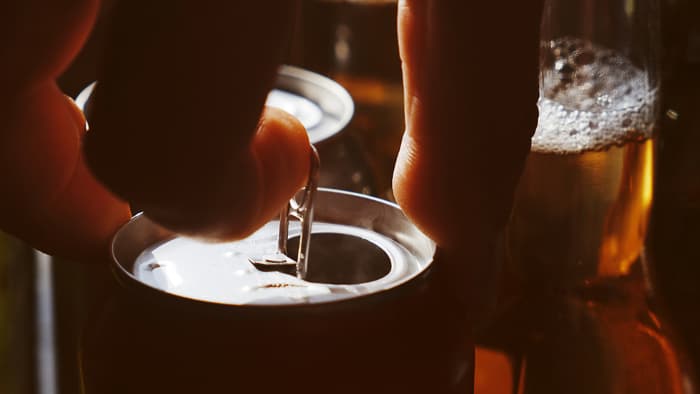
The bottom line is that beer kept for long periods of time can go bad and acquire a foul smell or unappealing taste, but it’s still safe to drink if you can get past the changes in the smell and taste. Most beers taste their best if you drink them within six to nine months after bottling/canning. But if you do need to hold onto your beer for a while beyond that, storing it upright, at the right temperature, and away from light sources will extend your beer’s shelf life.
To learn more about different kinds of beers, visit our beer styles blog posts.
